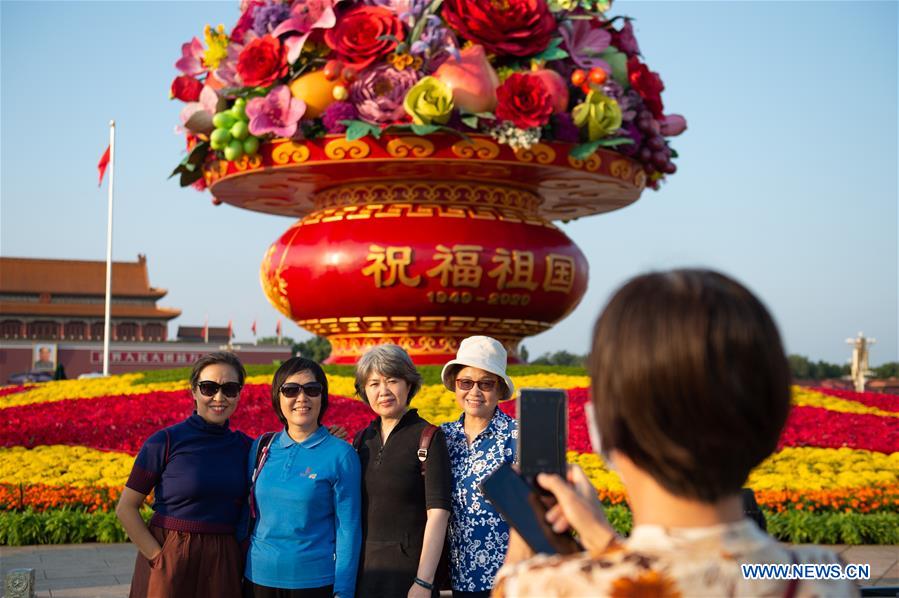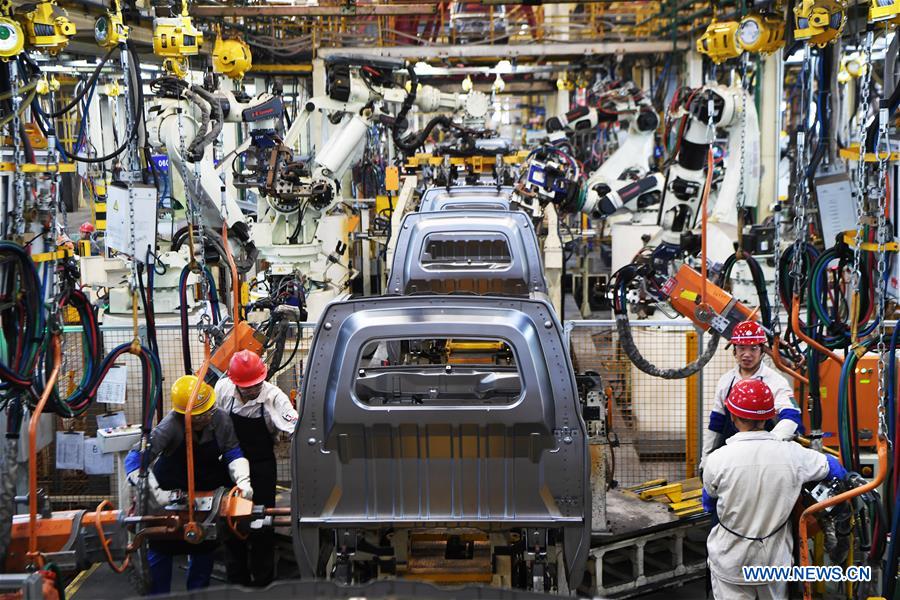China's Five-Year Plan goals being achieved despite COVID-19
- By Robert Griffiths
 0 Comment(s)
0 Comment(s) Print
Print E-mail China.org.cn, October 2, 2020
E-mail China.org.cn, October 2, 2020

The primary aim of China's 13th Five Year Plan (2016-2020) was to replace "unbalanced, uncoordinated, and unsustainable growth" with innovative, coordinated, green, open, and inclusive growth in order to create a "moderately prosperous society in all respects."
The target was to achieve annual GDP growth of 6.5% – amended upwards in 2016 for flexibility – which would double people's average disposable income.
Despite the impact of the COVID-19 pandemic, it remains possible that this can still be met thanks to slight over-fulfillment during the Plan's first three years.
This, it should be noted, is a growth rate two and three times that of the United States, Germany, the U.K. and other major economies over the same period.
The indications are that the Chinese Plan's other important targets – including those signifying substantial social advancement – are also within reach by the end of 2020, in time for next year's celebrations to mark the centenary of the Communist Party of China.
Ten of the current Plan's 25 targets aim to improve the environment and promote ecological sustainability. Unlike most of the others, all these are mandatory. One of the most significant successes has been to cut the proportion of coal in China's mix of energy production from almost two-thirds to around 58%, making good progress towards the objective of an absolute fall in the country's carbon emissions from 2030 onwards.
On the social front, the number of people in extreme poverty – with an annual income of less than 2,300 yuan ($335) – fell from around 56 million at the end of 2015 to 5.5 million last year, well on course for total elimination of poverty by the end of 2020.
A huge urban slum clearance and renovation program has rehoused nearly 10 million households in the course of the current Plan.
While not every numerical target is likely to be achieved, the past five years have seen huge progress in key strategic areas: advances in R&D have boosted added value in numerous manufacturing sectors; regional inequalities have been reduced through massive capital investment in transport, communications, housing and public services (notably health and education) in rural and interior areas; ambitious programs have improved air quality and counteracted water and soil contamination; and China's growing role in the international economy has brought benefits to the domestic economy, Chinese companies and to the host countries in which they operate.

All this has been made possible because the Five-Year Plan proceeded on the basis of China's mixed economy with large-scale state ownership and flexible economic planning.
Equally essential to China's success has been the guiding and directing role of the Communist Party of China, motivated by President Xi Jinping's vision of a "great modern socialist country" that is "prosperous, strong, democratic, culturally advanced, harmonious and beautiful."
The goal is to make this a reality by 2049 – the centenary of the founding of the People's Republic of China.
Of course, much can happen between now and then. Most urgently, the COVID-19 pandemic must be conquered not only in China, where the country and the Chinese people have shown extraordinary discipline and determination, but in other countries with which China has significant trading and investment relations.
That is why China is not only morally right but also economically wise in its pledge to share the fruits of its anti-COVID-19 research and development with other countries.
Undoubtedly, the COVID-19 crisis has also compounded problems in rolling out the Belt and Road Initiative, but these plans will prove even more valuable in lifting other economies out of post-pandemic depression.
In the short- to medium-term, global uncertainties and complex international situation may not abate. However, many people around the world will hope that China continues to participate ever more constructively in such global institutions as the U.N., the World Health Organization and the International Labor Organization as a voice for sanity, international cooperation and peace.
Despite current challenges, China will continue to look increasingly to boost its high-quality development so as to achieve the desired level of prosperity by the mid-21st century.
Robert Griffiths is a former Senior Lecturer in Political Economy and History at the University of Wales and currently the General Secretary of the Communist Party of Britain.
Opinion articles reflect the views of their authors only, not necessarily those of China.org.cn.
If you would like to contribute, please contact us at opinion@china.org.cn.





